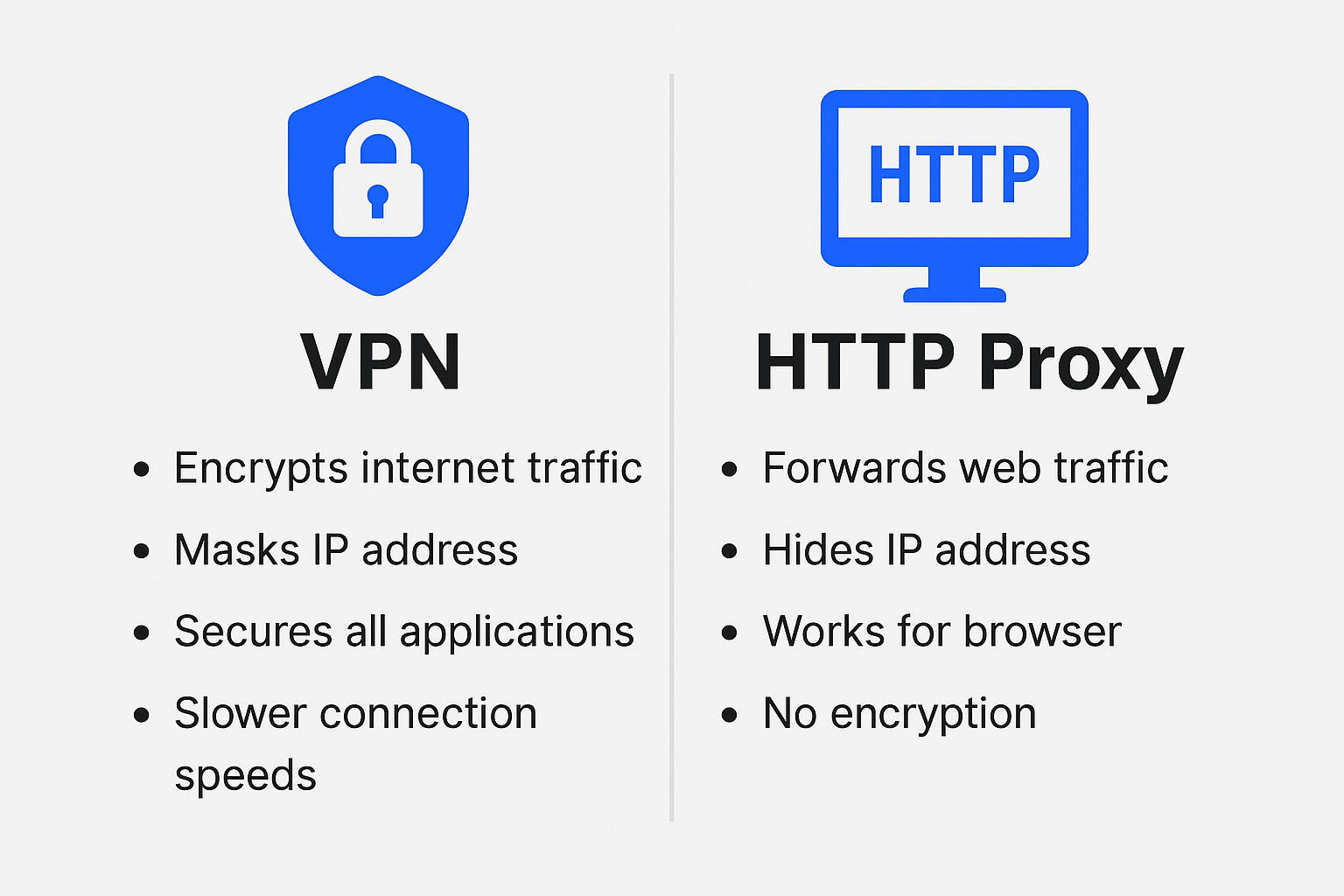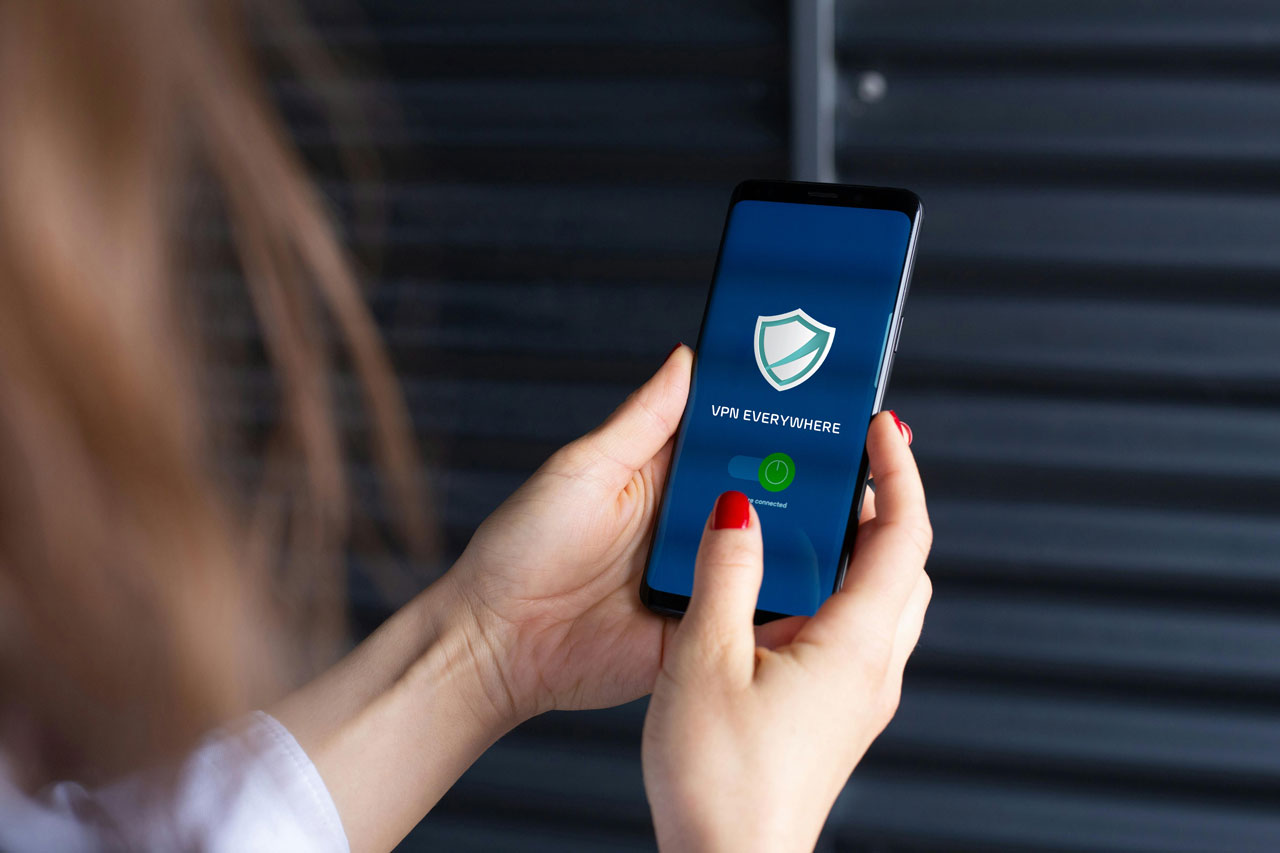In the digital age, online privacy and security are more important than ever. Two popular tools for protecting your identity and accessing restricted content are VPNs (Virtual Private Networks) and web browser proxies. While both serve similar purposes, they function differently and have distinct advantages and disadvantages. Let’s explore how they compare.
What is a VPN?
A VPN (Virtual Private Network) encrypts your internet traffic and routes it through a secure server, masking your IP address and protecting your data from hackers, ISPs, and government surveillance. VPNs cover all internet activity on your device, ensuring comprehensive security.
Pros of VPNs
- ✅ Strong Encryption – VPNs use advanced encryption protocols like AES-256, making your data unreadable to third parties.
- ✅ Complete Privacy – Your entire internet traffic is protected, not just browser activity.
- ✅ Bypasses Geo-Restrictions – VPNs allow access to blocked websites and streaming services worldwide.
- ✅ Secure Public Wi-Fi Usage – Protects your data when using unsecured networks in cafes, airports, and hotels.
Cons of VPNs
- ❌ Slower Speeds – Encryption and rerouting can reduce internet speed.
- ❌ Subscription Costs – Most reliable VPNs require a paid subscription.
- ❌ Blocked by Some Services – Some websites and streaming platforms detect and block VPN usage.
What is a Web Browser Proxy?
A web browser proxy acts as an intermediary between your device and the internet, masking your IP address for specific applications or browsers. Unlike VPNs, proxies do not encrypt your data, making them less secure.
Pros of Web Browser Proxies
- ✅ Quick and Easy Setup – No software installation required; simply configure proxy settings in your browser.
- ✅ Bypasses Geo-Restrictions – Allows access to blocked websites without a full VPN.
- ✅ Faster Speeds – Since proxies don’t encrypt data, they often provide faster browsing speeds.
Cons of Web Browser Proxies
- ❌ Limited Security – No encryption means your data is vulnerable to hackers and surveillance.
- ❌ Only Works for Browsers – Unlike VPNs, proxies do not protect other applications or system-wide traffic.
- ❌ Unreliable Free Services – Many free proxies log user data or inject ads into browsing sessions.
Which One Should You Choose?
- If you need strong security, encryption, and full-device protection, a VPN is the better choice.
- If you only need basic IP masking for web browsing and don’t require encryption, a proxy may be sufficient.
For maximum privacy and security, a VPN is the superior option, especially when handling sensitive data or using public Wi-Fi.
Would you like me to refine or expand any section further? Let me know how I can tailor this to your needs!


